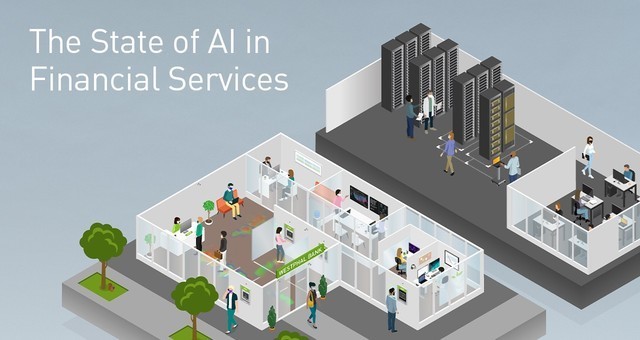NVIDIA has been collaborating with some of the world's leading financial institutions for many years to develop and execute various rapidly developing AI strategies, and has asked them what they are most concerned about over the past three years.
Some results are just as NVIDIA imagined; And some of the results are truly surprising. This year's survey was conducted in a macroeconomic environment full of variables, so both results are available.
500 respondents from top global financial service institutions elaborated on the areas they believe have the highest return on investment in AI, and the results were both expected and unexpected
Whether it is banks and fintech institutions, or insurance and asset management companies, their goal is to find more precise risk management methods, reduce operating costs by improving efficiency, and enhance customer and customer experience. NVIDIA has obtained the most attractive information in the field of AI through in-depth investigation.
The following are the four most important findings from the "AI Status in the Financial Services Industry: Trends for 2023" survey, which collected opinions from nearly 500 global financial services professionals.
The hybrid cloud is coming with great momentum
Like other enterprises, financial service companies are also trying to optimize their spending on AI training and inference, and clarify that sensitive data cannot be migrated to the cloud. For this reason, they are transferring many computationally intensive workloads to the hybrid cloud.
This year's survey found that nearly half of the respondents are migrating to hybrid cloud to optimize AI performance and reduce costs. The recent releases of leading cloud service providers and platforms emphasize this transformation, and make data portability, machine learning operations (MLOps) management, and software standardization across cloud and on premises instances strategic priorities for cost reduction and efficiency improvement.
Large language models rank among the top in various AI use cases
The survey results focused on a sample size of over 200 companies in the Americas and Europe. The survey found that the top AI use cases were natural language processing and large language models (26%), recommendation systems and suboptimal actions (23%), portfolio optimization (23%), and fraud detection (22%). Emerging workloads in metaverse, synthetic data generation, and virtual worlds are also frequently mentioned.
Banks, trading companies, and hedge funds are adopting these technologies to create personalized customer experiences. For example, Deutsche Bank recently announced a multi-year innovation partnership with NVIDIA, applying AI to various use cases in the financial services industry such as intelligent avatars, voice AI, fraud detection, and risk management, which can reduce total cost of ownership by up to 80%. The bank plans to use NVIDIA Omniverse to build a 3D virtual image to help employees browse internal systems and answer personnel questions.
Banks see huge potential of AI in increasing revenue
The investigation found that AI is having a quantifiable impact on financial institutions. Nearly half of the respondents stated that AI will help their organizations increase their annual revenue by at least 10%. More than one-third of people say that AI will help them reduce costs by at least 10% annually.
Financial service professionals highlighted how AI can improve business operations, particularly in enhancing customer experience (46%), improving operational efficiency (35%), and reducing total cost of ownership (20%).
For example, computer vision and natural language processing are helping to automate financial document analysis and claims processing, saving businesses time, money costs, and resources. AI can also prevent fraud by improving anti money laundering and "know your customer" processes, while recommendation engines can create personalized digital experiences for a company's customers or clients.
The biggest obstacle: recruiting and maintaining AI talent
Enterprises will face numerous challenges in achieving their AI goals, with the biggest obstacle being the recruitment and retention of AI experts. 36% of respondents mentioned this issue, and 28% stated that there is not enough technology to drive AI innovation.
26% of financial service professionals indicate that another pressing issue is the insufficient scale of data used to train models and ensure accuracy. The solution to this problem is to use generative AI to generate accurate financial synthesis data and train AI models using this data.
Executives' support for AI reaches a new high
Despite these challenges, the prospects of AI in the financial services industry are still increasingly bright. A new theme in the survey results is to increase executive support for AI. About 64% of respondents stated that 'my executive team values and trusts AI,' compared to only 36% a year ago. In addition, 58% of people stated that "AI is very important for the future success of our company," an increase from 39% a year ago.
Financial institutions plan to continue expanding enterprise level AI in the future, including upgrading and adding AI infrastructure such as hardware, software, and services.
A complex full stack AI platform can empower data scientists, quantitative analysts, and developers while minimizing bottlenecks as much as possible. Executives have already seen the return on investment in deploying AI applications, and these leaders will focus on expanding AI across the entire enterprise, hiring more data scientists, and investing in accelerated computing technology in 2023 to support the training and deployment of AI applications.


